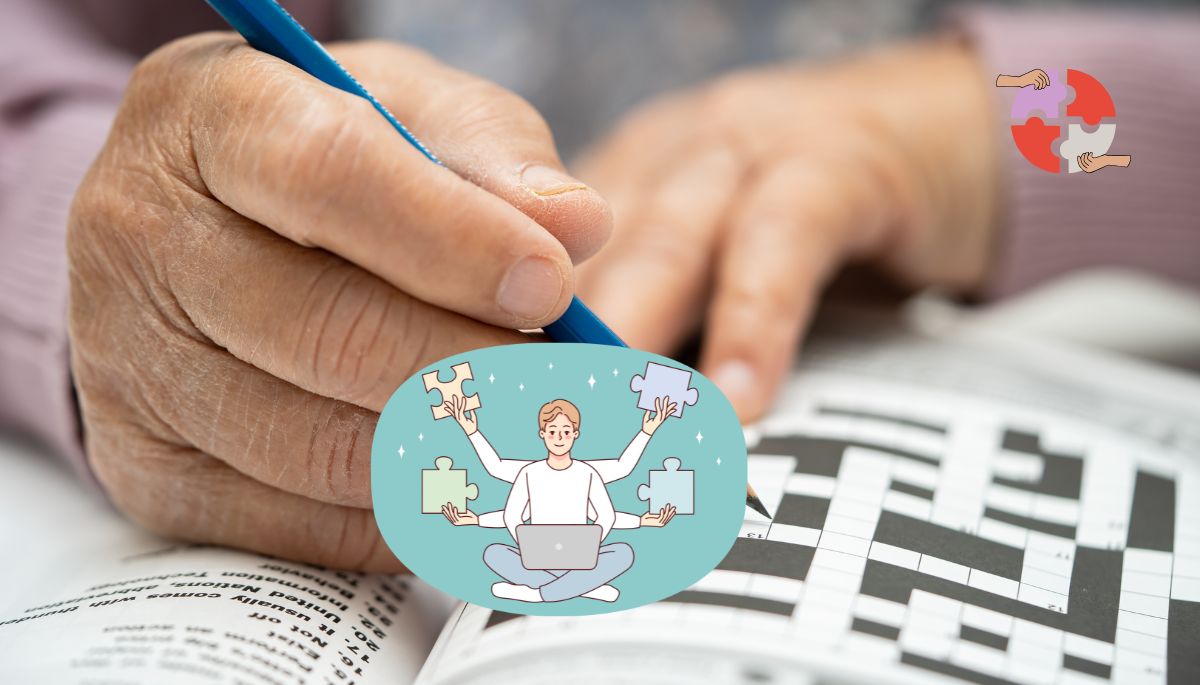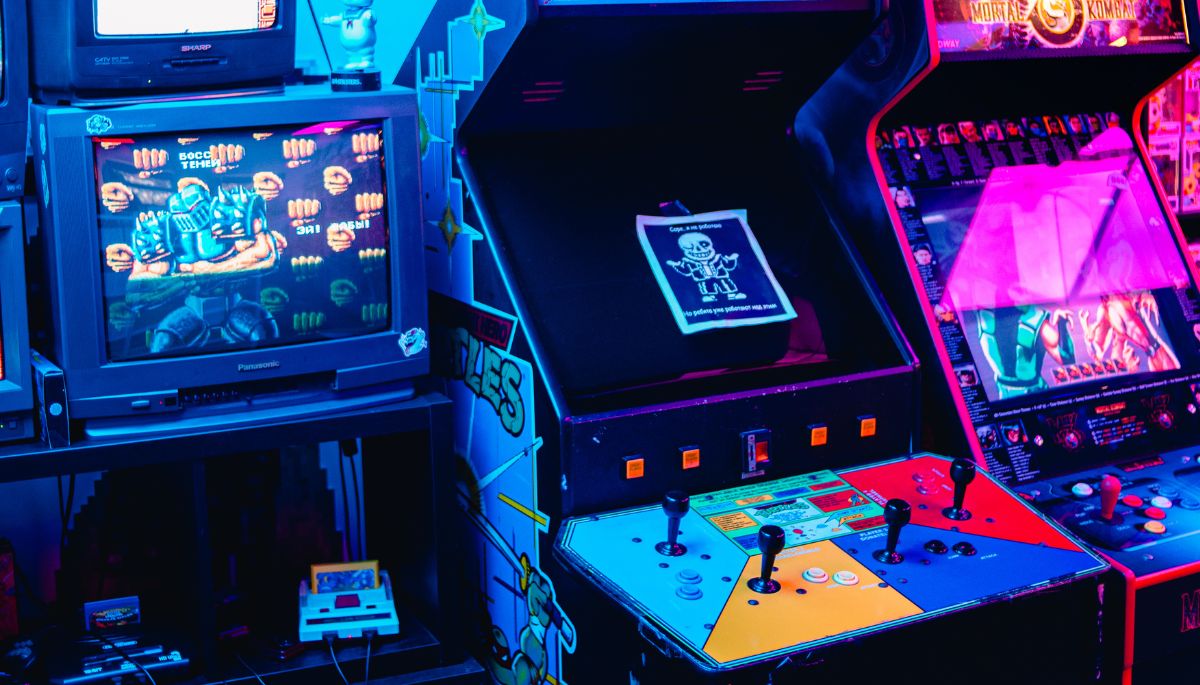How does video games help with problem-solving skills? You might wonder if spending time playing games can actually be good for the brain. Turns out, they can, Video games are more than just entertainment, they’re a great way to improve problem-solving skills. Many games challenge players to think creatively, plan, and make decisions—all of which boost critical thinking. This article explores how video games can be a fun tool for developing problem-solving skills, especially for kids and teens.
How Video Games Boost Problem-Solving Skills
Many video games require players to observe patterns, make decisions, and react accordingly. Games often put players in challenging situations, forcing them to pause and think critically. This helps enhance analytical skills and trains the mind to work efficiently under pressure.
Video games demand attention to detail, especially in games that involve puzzles or complex narratives. Maintaining focus over extended periods, players learn to sustain concentration, a skill valuable in academic and professional settings.
Strategy-based games, such as simulation or role-playing games, encourage planning and foresight. Players must analyze options, plan moves, and anticipate outcomes, helping them apply strategic thinking to real-world situations.
Types of Games and Their Problem-Solving Benefits
| Type of Game | Problem-Solving Skill Developed | Example Games |
|---|---|---|
| Puzzle Games | Pattern recognition, logical thinking | Tetris, Candy Crush |
| Strategy and Simulation | Strategic planning, resource management | SimCity, Civilization |
| Adventure and Role-Playing | Decision-making, critical thinking | Legend of Zelda, Skyrim |
| Multiplayer Online Games | Teamwork, communication, adaptability | Fortnite, Minecraft |
| Sandbox/Open-World | Creativity, experimentation | Minecraft, Grand Theft Auto V |
Benefits for Real-Life Problem Solving
Video games often present multiple options and limited time to decide. This strengthens decision-making skills as players weigh pros and cons swiftly. Games offer endless chances to try again after mistakes. This “trial and error” process encourages resilience and learning from failure, a great mindset for tackling real-world challenges.
Many games rely on remembering complex rules, patterns, or tasks. This boosts memory skills, helping players retain and recall information better, a skill useful for exams or work projects.
Why Problem-Solving Skills Are Important

Problem-solving is a crucial life skill. It helps us make quick decisions, work under pressure, and find solutions to complex issues. Strong problem-solving abilities are essential in school, work, and daily life. Video games offer a unique way to enhance these skills because they provide an interactive environment where players constantly learn, adapt, and overcome obstacles.
May You Like : How Video Games Affect the Brain Negatively
Real-World Applications of Gaming Skills
Games that involve critical thinking, like puzzles or simulations, help build skills useful for math, science, and even reading comprehension. For example, kids who play logic-based games might find themselves better equipped to solve math problems or grasp scientific concepts that require an analytical mindset.
The focus and adaptability developed in gaming can transfer to the workplace. Fast-paced, competitive environments often mirror the multitasking and decision-making in games. Employees who game regularly often report better stress management and creative problem-solving abilities, essential for thriving in fast-evolving industries.
Multiplayer games often involve collaboration and communication. These skills translate well to social and work environments where teamwork is key. Whether it’s coordinating a team mission or strategizing in an online game, players practice communication and leadership skills they can apply outside the gaming world.
Balancing Gaming with Other Activities
While video games offer many benefits, it’s essential to keep a healthy balance. Too much screen time can have drawbacks, so incorporating other problem-solving activities, like reading, puzzles, or sports, can provide a well-rounded approach. Moderation is key, allowing players to benefit from gaming while also exploring other skill-building activities.
Top Problem-Solving Games for Different Age Groups
| Age Group | Recommended Games | Skills Developed |
|---|---|---|
| 5-8 Years | Minecraft, LEGO video games | Creativity, basic problem-solving |
| 9-12 Years | Portal 2, Plants vs. Zombies | Logical reasoning, strategic thinking |
| 13-17 Years | Civilization series, SimCity | Advanced planning, decision-making |
| 18+ | The Legend of Zelda, Assassin’s Creed | Critical thinking, resilience, teamwork |
The Future of Learning Through Gaming
The role of video games in education and skill development is growing, with many schools and educators now exploring “gamification” as a learning tool. Through educational games and gamified learning, students can grasp complex subjects in a fun and interactive way. Researchers believe that with the right balance, gaming could be a powerful tool in developing cognitive abilities and emotional intelligence.
The Psychology Behind Gaming and Problem-Solving
Understanding why video games help with problem-solving skills requires a look into psychology. Games are designed to reward players for overcoming challenges, which triggers the brain’s reward system and encourages continuous learning. Here’s how this process works:
Video games are highly engaging and immersive, which keeps players motivated to continue, even when faced with difficult challenges. Unlike traditional learning methods, gaming keeps the brain alert and attentive, making it easier to absorb and retain problem-solving techniques.
Video games often involve trial and error, where players learn through repeated attempts and adjust their strategies to progress. This mirrors real-life problem-solving, where learning from mistakes is crucial. In a game, failure isn’t a setback but an opportunity to try a different approach, which fosters resilience and creative thinking.
Cognitive flexibility is the ability to adapt your thinking when faced with new information or unexpected changes. Games constantly challenge players to adjust their strategies or tactics, improving cognitive flexibility. This is especially useful for tasks that require adaptability, like switching tasks at work or managing multiple priorities in daily life.
Tips for Parents and Educators: Healthy Gaming Habits
For parents and educators interested in using games as learning tools, here are some tips to ensure gaming supports cognitive development:
- Choose Educational Games: Select games that challenge players with puzzles, logic tasks, or strategy. Games like Portal 2 or The Witness provide fun ways to improve logic and critical thinking.
- Set Time Limits: Moderation is key. Setting boundaries helps prevent overuse, ensuring that gaming complements other educational activities.
- Discuss Game Strategy: After gaming sessions, talk with kids about the strategies they used. Ask questions like, “How did you decide to solve that level?” or “What would you do differently next time?” This reflection reinforces problem-solving skills.
- Encourage Team Play: Multiplayer games are great for building communication and teamwork skills. Try to choose cooperative games that require players to strategize and solve challenges together.
Exploring Gamification in Education
As gaming continues to gain recognition in education, many schools are implementing gamification, or using game-like elements to enhance learning. By incorporating challenges, rewards, and interactive problem-solving, gamification creates a stimulating environment where students feel excited to learn.
Some schools use specific game-based learning platforms, like Minecraft: Education Edition, which teaches subjects like math and science through interactive gameplay. Gamification not only improves engagement but also allows students to develop problem-solving skills in a practical, hands-on way.
May You Like : Why Are Video Games Bad for Your Eyes
Conclusion
So, how does video games help with problem-solving skills? As we’ve seen, games engage players in ways that sharpen focus, boost memory, and enhance strategic thinking. Far beyond mere entertainment, video games provide players—both young and old—with tools to develop critical life skills in a fun and interactive way. So next time you pick up a controller, remember: you’re not just playing, you’re training your brain.
FAQs About How Does Video Games Help With Problem Solving Skills
Can video games really help with critical thinking?
Yes, Many games encourage analysis and decision-making, which enhances critical thinking.
Are all video games good for problem-solving skills?
Not all, but games like puzzles, strategy, and role-playing can be highly beneficial.
How do games improve memory?
Many games require remembering rules, patterns, or objectives, which naturally strengthens memory skills.
Is playing video games better than traditional problem-solving exercises?
Both are effective. Games add a fun, engaging element that traditional exercises might lack.
Can video games help kids with problem-solving?
Absolutely, Video games designed for kids often boost creativity, critical thinking, and resilience.
How long should someone play to see benefits in problem-solving?
Studies suggest that playing for 30-60 minutes a day can provide cognitive benefits without leading to screen fatigue.
Are puzzle games the best for problem-solving?
Puzzle games are great, but games requiring strategy, like simulation and adventure games, also significantly enhance problem-solving skills.
Can gaming improve social skills?
Yes, Multiplayer games encourage teamwork, cooperation, and communication, which are valuable social skills.
Does gaming help with focus in school?
Absolutely. Games that require attention to detail can help improve focus, benefiting students in their studies.
Are there any negative effects of gaming on problem-solving skills?
Overuse of video games can cause distraction or reduced attention spans. Moderation is essential for balanced cognitive development.
May You Like
